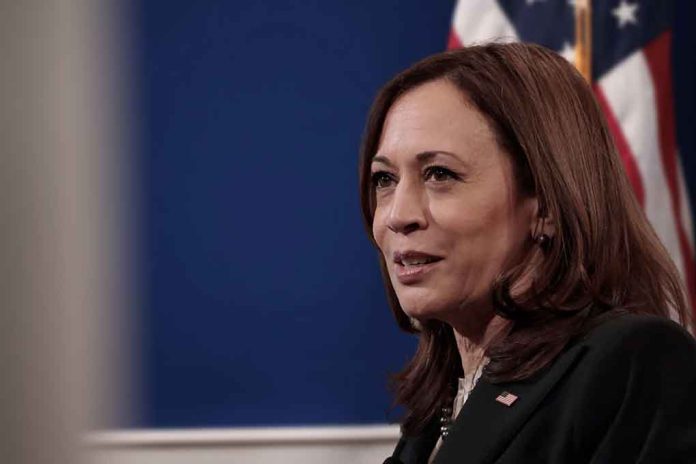
Kamala Harris faced tough scrutiny following a “60 Minutes” interview, raising questions about her communication skills and media strategies ahead of the election.
At a Glance
- Public reaction to Kamala Harris’s CBS News interview focused on her clarity on major national issues.
- Critics argue her media engagements lack the finesse shown by figures like Donald Trump.
- Harris aims to counter declining voter approval by asserting her record on immigration, economy, and foreign policy.
- Timing was crucial, as the discussion aired less than a month before the presidential election.
Media Performance Examined
Kicking off her increased media engagements, Vice President Kamala Harris appeared on CBS News’ “60 Minutes” ahead of the fast-approaching presidential election. Her interview with Bill Whitaker touched on critical issues including the Middle East, immigration policy, and domestic concerns. However, her responses have drawn criticism for perceived lack of specificity and depth, especially in terms of the detail-oriented finesse that characterized former President Donald Trump’s media presence.
Harris chose to navigate complex questions carefully, notably avoiding labeling Israeli Prime Minister Netanyahu as a “strong ally” due to recent tensions between the U.S. and Israel. Additionally, she defended her and President Joe Biden’s record on reducing illegal immigration by half, attributing significant policy obstacles to Republican objections rooted in Trump-era policies. Despite asserting achievements, critics point to a communication strategy that seemed hesitant during this key moment on national television.
Kamala Harris makes the case in 60 Minutes interview for why she should be president https://t.co/pKgRGDBbLk
— CBS News (@CBSNews) October 8, 2024
Strategic Challenges
The interview unfolded as Harris and Minnesota Governor Tim Walz, her running mate, journey through a challenging campaign trail against Donald Trump. Analysts suggest Harris’s media strategy needs sharpening to counter criticism and deliver stronger voter appeal. Tensions with her opposition are heightened, especially following Trump’s claim of declining an interview with CBS, which he called “fake news”. The strategic minefield requires Harris to be both adept and resilient, skills Trump showcased in his own media interactions.
Harris’s stated economic plan, part of the CBS interview discussions, revealed a vision to expand the U.S. economy by increasing taxes on the wealthy to fund new policies. While aiming to reduce the national deficit, her plan projects adding $3 trillion, compared to $7.5 trillion projected from Trump’s policies, according to reports. Balancing economic proposals against ongoing voter anxieties about high prices and economic competition, particularly with China, Harris seeks to carve a path that reassures American workers.
Communication and Policy Exploration
The stakes for Harris in this media engagement were undeniably high with the election looming just weeks away. As voters express economic concerns prominently, Harris’s advocacy for expanding the child tax credit and offering certain tax breaks is one facet of addressing high prices. Her comments on Ukraine reflect a broader international stance, promoting diplomacy by emphasizing that negotiations with Vladimir Putin should not exclude Ukraine. Critiques emphasize that these discussions require more direct and unequivocal communication as the election draws near.
In the face of these challenges, Harris defends her positions on contentious topics like immigration and fracking. This requires striking a balance between evolving policy views and maintaining a consistent leadership image, a delicate task in the fast-paced realm of public opinion. Her decision to commemorate Israeli attack victims with a symbolic gesture illustrates an attempt to showcase her leadership qualities, yet clarity in such symbolic narratives remains a critical aspect of voter persuasion in the current political climate.







